Description
ABSTRACT
The Nigerian Corporate Governance Challenge: Inadequacy of Laws or Question of Enforcement
Oludolapo Makinde*
The unexpected collapse of prominent companies like WorldCom and Enron led many countries to pay attention to corporate governance. In a bid to forestall future collapses, regulators across the world often take steps to review extant laws. In particular, developing economies like Nigeria are now cognizant of the importance of corporate governance and are making efforts to develop a framework that will stand the test of time. Despite this staunch resolution, Nigeria is not making substantial economic progress. Critics have argued that Nigeria’s corporate laws and governance codes are inadequate and cannot produce the desired results. There is, therefore, a need to further explore this concern, and this article seeks to do so by undertaking an appraisal of Nigeria’s corporate governance framework through a comparative analysis with that of Canada. The aim is to ascertain if the main challenge is one of inadequacy of laws or of implementation and enforcement.
Keywords: Corporate Governance, Comparative Law, Nigeria, Canada, OECD Principles of Corporate Governance.
INTRODUCTION
The proper governance of companies will become as crucial to the world as the proper governance of countries.1 The term “corporate governance” has become well-accepted corporate parlance all over the world and this is because of the vital role it plays in today’s economy in terms of fostering economic growth, sustainable development and ensuring financial stability.2 It has such an impact because a company’s activities not only affect the company and its shareholders but has a ripple effect that trickles down to the average person on the street.3 Corporate governance is of particular concern for companies seeking to attract funding because investors consider factors such as efficiency, transparency, and accountability when deciding to invest in an enterprise.4 However, corporate governance simpliciter is not sufficient to secure and maintain investor confidence – instead, what is required is good corporate governance.
* PhD Student , Peter A Allard School of Law, University of British Columbia, Vancouver, Canada.
- James D Wolfensohn, ‘The World in 1999: A Battle for Corporate Honesty’ The Economist (London, 1999) 38.
- See Organisation for Economic Co-operation and Development, G20/OECD Principles of Corporate Governance ( OECD 2015).
- The Enron collapse is a case in point. At the time, Enron held $US60 Billion in assets and was one of the biggest companies in the United States. When the company was still solvent, lower level employees were encouraged to invest in the company’s shares for their retirement savings and unknown to them, the company’s executives had adopted dubious accounting practices to create the illusion that the company was making profit. When the company eventually collapsed, the employees had to file a class action lawsuit to recover their funds. Shareholders also filed several suits against Enron, and Arthur Andersen (Enron’s auditor) to recover their funds. See Peter Bondarenko, ‘Enron Scandal: Summary, History, & Facts’ (Encyclopedia Britannica, 7 May 2019) accessed 13 July 2020.
- G Abid and others, ‘Theoretical Perspectives of Corporate Governance’ (2014) 3(34) Bulletin of Business and Economics 166, 167.

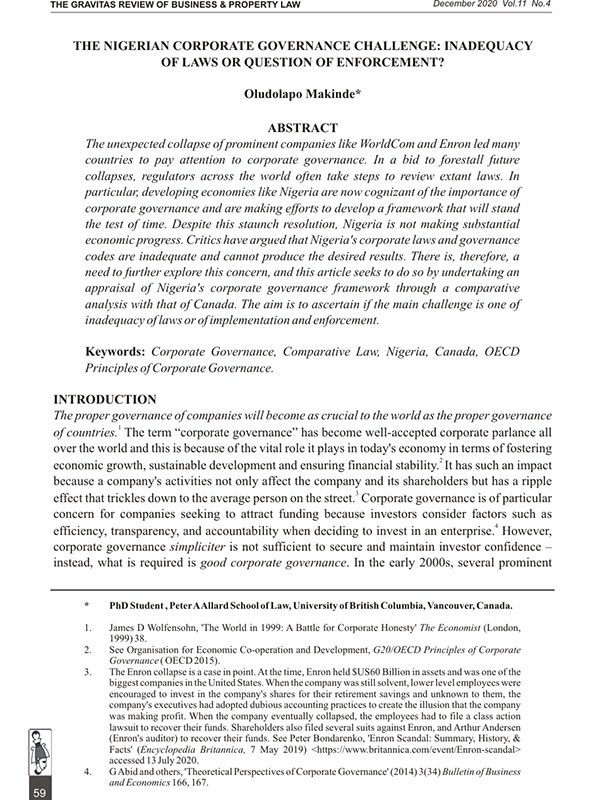
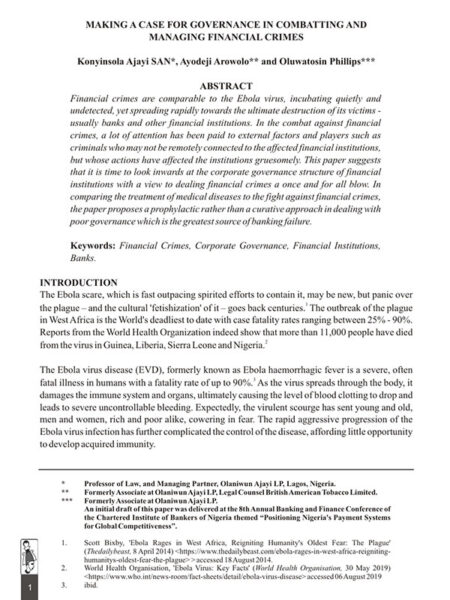
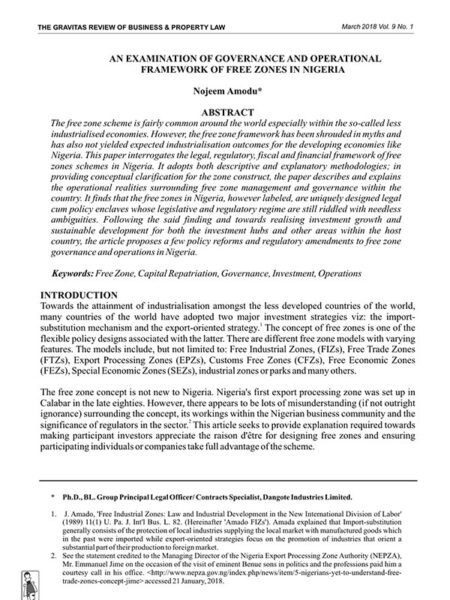
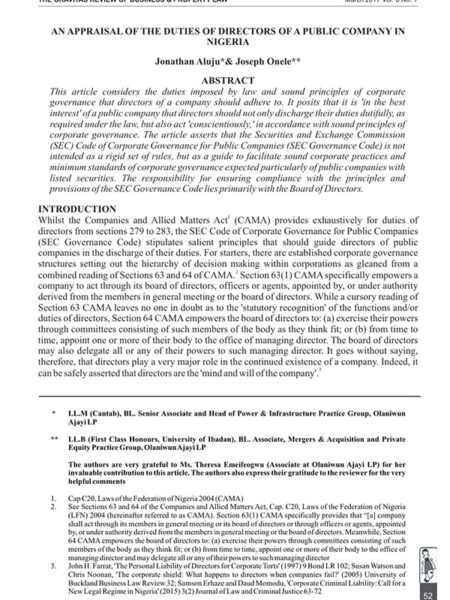
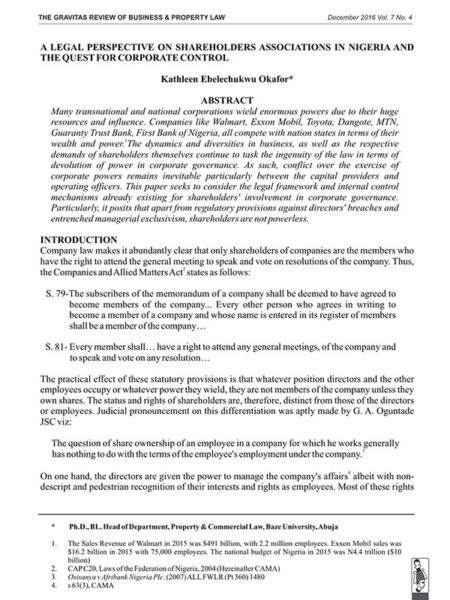


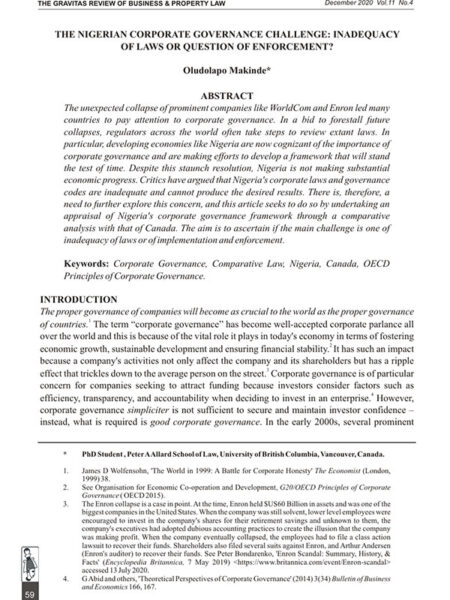
Reviews
There are no reviews yet.